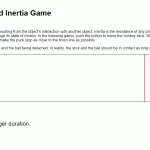Share this
A while ago, I went to a local barber shop to get my hair cut. While I was there, a middle-aged woman entered the shop by herself. She informed the barber that she would be bringing her son in momentarily, and she wanted to explain how he preferred his hair to be cut. She mentioned that her son didn’t want his hair too short and that he wanted the sides to be done in a specific way. According to her, he didn’t want his hair to be cut the wrong way, and that he would be upset if his hair didn’t look good.
I assumed that her son was probably a preschooler or an elementary school child – someone too young to clearly express his preferences. However, to my surprise, the woman returned with a tall young man, who appeared to be in his late teens or early 20s, and seated him in the barber’s chair.
The young man didn’t seem to have any mental or communication impairments, yet his mother continued explaining his hair-cutting preferences to the barber. The barber, evidently surprised as well, tried to encourage the young man to express his own grooming choices, but the woman persisted. She insisted that if she allowed her son to speak, he might convey the wrong information. Her son remained silent in the chair as he received his haircut.
This situation exemplifies a lack of independence. I can only imagine how the young man felt – mortified at being treated like a young child, angry for not being given the chance to speak his mind, sad that his mom didn’t trust him to communicate his preferences to the barber, and annoyed that he couldn’t voice his own opinion, which might have differed from his mother’s assumptions.
While perhaps not to this extreme, many parents feel compelled to “help” their children, seeking the “right” results, whether in school assignments, projects, or even tests. However, as parents, it’s important to consider whether you are providing your child with the opportunity to be independent and to let them experience failure at times.
The Importance of Independence in a Child’s Development

Independence is a critical aspect of a child’s development. It enables them to carry out activities on their own, take responsibility for their own decisions, and develop a sense of self-reliance. Supporting the growth of independence in children, both in and outside the classroom, is important for numerous reasons. Giving your child a chance to do something on his or her own has many merits, including the following.
Your child will build self-esteem and confidence
Allowing your child to engage in activities independently fosters the development of self-confidence and self-esteem. When a child is given the opportunity to tackle challenges independently, they can explore their abilities and experiment with different creative methods. Upon succeeding, they experience an incredible sense of accomplishment and self-reliance, knowing that they achieved this feat without assistance. This strengthens their belief in their capabilities and encourages the development of a resilient, growth-oriented mindset.
Moreover, when a parent allows a child to approach tasks independently, an implicit message of trust is conveyed. The parent is telling the child, I believe you can do this on your own. This also helps their self-esteem grow. Successfully completing tasks fuels their belief that they can confidently undertake and achieve any future challenges they may face.
Failure is often an important teacher for your child
Many parents fear that their child may fail at something if they attempt it without assistance. However, unless the failure leads to severe physical or emotional harm, experiencing failure is often a crucial part of a child’s development.
When a child encounters failure, they have the opportunity to reflect on the experience, assess what went right and wrong, and transform it into a learning opportunity. Lessons learned through failure are more enduring than lessons simply taught. If the young man in the barber shop had been allowed to communicate his grooming preferences on his own – even if he failed to do so clearly and received a poor haircut – he would know how to convey his wishes more effectively next time. However, by not being given any chance to make mistakes, he never learns how to communicate his preferences efficiently.
Your child will develop problem-solving and critical thinking skills
By taking on tasks independently, children explore and experiment with various tactics on their own. The process of devising strategies and using them to accomplish tasks is crucial in itself. This trial-and-error process embodies the essence of problem-solving.
Problem-solving and critical thinking skills are cultivated when children actively participate in activities that present challenges. They reflect, analyze, and synthesize information in order to make progress. In comparison to children who only follow instructions, those who independently tackle challenges develop greater resilience and experience less anxiety when facing difficulties.
For instance, one of the biggest issues children face when tasked with a difficult problem is “freezing.” Upon encountering a challenging math or physics question, they may freeze, unable to begin. This could stem from a fear of making mistakes or a lack of confidence in their abilities. They are afraid that the first step they take is wrong. However, when children gain sufficient experience in independently solving problems, they can overcome this “freezing” response. These children have become more accustomed to failure and have grown more confident in their ability to solve the problem after trial-and-error. They would not be afraid of making a mistake in the course of solving the problem.
Your child will improve self-awareness and self-regulation
Self-awareness refers to your child’s ability to recognize their own emotions, thoughts, beliefs, strengths, and weaknesses. Self-regulation refers to your child’s ability to manage and control their emotions, thoughts, and behaviors in various situations.
By encouraging independent decision-making and problem-solving, children become more aware of their strengths, weaknesses, and feelings. Instead of arriving at the answer directly by following an instruction, children would come up with and try out various strategies to solve the problem on their own. Through this process, they learn what they are good at and what they are missing. They also learn to regulate their emotions and devise coping strategies when tackling challenges. As mentioned above, fear is one emotion that holds children back from challenges. By being accustomed to tackling challenges independently and having experienced failure, they can keep their emotion in check when they take on new challenges.
How Independence Contributes to Academic Success

The development of independence in children has been found to have a direct impact on their academic performance. One aspect is the personal growth that independently performing a task brings on, as described above. In terms of academics, children who are more independent often performs better in school. In elementary school, a child can depend on their parents to make some study schedules or study plans for them. The child in elementary school ages is still developing self-awareness and study skills. However, by middle school and high school where students become busier, you’ll want your child to be independent for various reasons:
1. Children can take ownership and responsibility in their own learning
When a child develops independence, they become more likely to take responsibility for their education, including study habits, school attendance, and assignment completion. They can make decisions without explicit instructions from parents or teachers. They are capable of doing what is necessary to fulfill their tasks and responsibilities to excel in school. Students with this level of autonomy tend to perform much better academically than those who rely on others’ instructions.
2. Children can make a better study plan than if they were told what to do
George is a good student who is good at following instructions. He completes all of his school homework. He relies on his tutor to answer his questions and create study plans for him. His tutor assigns additional homework to prepare him for tests.
On the other hand, Sheila is an independent student who prefers to take matters into her own hands. She views school homework as mere suggestions, choosing to focus on questions that she knows she has troubles in while skipping those she finds too easy. Although Sheila asks her tutor to help her in her areas of weakness, she creates her own study plans before her tests.
So, which student do you think performs better in school?
In 9 out of 10 cases, students like Sheila perform much better, especially in high school and beyond. Academic success requires students to be aware of their own knowledge, skill set, strengths, and weaknesses.
Even with one-on-one support, tutors and parents cannot fully account for every aspect of a student’s academic life. While exceptional tutors can create near-ideal study plans, they are not mind readers or miracle workers. They don’t know, nor do they have time to find out, exactly what the student’s teacher taught in school, how it was taught, what in-class activities they did, how they did them, what kind of questions will be on a test, and what other tests and activities the student has in other subjects. Students who only follow plans made by others lack flexibility. For instance, if a teacher announces a quiz that will take place tomorrow and if the student isn’t scheduled to see their tutor today, Sheila would likely perform well, whereas George might fail the quiz.
3. Children can manage their time better
Children who can effectively manage their own time have a significant advantage in their academic journey. Time management involves considering a student’s entire schedule, such as school classes, activities, test or exam dates, assignments, projects, extracurricular activities, and family or work commitments.
Ultimately, time management is the responsibility of the student. While a parent, teacher, or tutor can teach effective time management skills, they cannot do it for the student. They are not fully aware of all the student’s activities and thus cannot create a schedule that is exactly suitable or efficient for the student.
4. Children who are independent tends to be more intrinsically motivated
Intrinsic motivation refers to the drive or desire to engage in a task or activity for the inherent enjoyment, satisfaction, or personal fulfillment it provides.
When children accomplish a task independently, they gain a greater sense of achievement than if someone assisted them. As they tackle challenges independently, they develop their problem-solving and critical thinking skills, ultimately becoming better problem-solvers. As they improve in problem-solving, they accomplish more tasks independently, which boosts their self-confidence. This essentially creates a positive feedback cycle.
Children who excel at problem-solving often enjoy the problem-solving process itself. Some of my top-performing students in problem-solving were also those who found the most enjoyment in the process. They are more motivated to attempt challenging tasks because they see them as enjoyable activities. This is not the case for students who rely solely on following instructions to perform a task. In this scenario, the student does not have the opportunity to express their creativity or experiment with different tactics. Consequently, they don’t experience the same level of satisfaction or enjoyment as students who tried on their own and achieved success.
Tips to Encourage Independence in Your Child

As a parent, you play a crucial role in nurturing your child’s independence. Whether your child becomes an independent problem-solver or someone who only follows what they are told ultimately depends on their parents and the environment surrounding them. I believe that a child should be independent. Based on my experience, children who are independent have far better chance of succeeding in school than children who are dependent on other people’s help.
So, how can you foster independence in your child? Try out these strategies.
Let your child make his or her own decision, even if it turns out to be a bad decision
Are you ever worried that when your child makes a decision, it might be a bad one? Do you sometimes find yourself making decisions for them out of this fear?
It’s understandable to step in for major decisions that adults should make, like choosing a school for your child or purchasing a family car. However, when it comes to everyday decisions, allow your child space to make their own choices and avoid the temptation to “correct” them.
For instance, when you and your child go to a store to buy clothes, let them select their own outfits. If they choose an ugly-looking sweater (assuming it’s not too expensive), don’t override their decision out of concern that they’ll be ridiculed at school. Allow them to wear the sweater and face any potential consequences. If they do get teased, your child will likely reflect on their choice and opt for a different sweater next time. Or, they might choose to continue purchasing the same kind of ugly-looking sweater in order to stand out, which is also fine. Allowing your child to make decisions and experience the consequences demonstrates that you trust their ability to make decisions and reflect on them. It shows that you respect their independence.
Wait a bit before offering to help
Do you often feel compelled to help your child even when they haven’t asked for assistance? Try to resist the urge and take a step back. Allow your child to struggle for a bit, as this process can lead to new ideas and teach them what does and doesn’t work.
If you notice that your child is becoming frustrated or making no progress after a while, offer some hints instead of providing the solution. Use phrases like “I noticed that…” or “Maybe we can try…” or “I wonder why…” Then, let your child figure out the meaning behind your hints.
Some children may prefer receiving the direct answer right away, but it’s important to resist the temptation to provide it every time. Giving the final answer will not help your child develop independence or self-confidence. Explain to your child that the process and the struggle are just as important as the final answer, as it helps them become a stronger problem-solver and a more proficient thinker.
Communicate trust in your child’s ability to do a task on their own
Suppose your child lacks confidence in their ability to complete a task independently. If you believe they have the necessary skills and knowledge to accomplish the task, make sure to communicate your confidence in them. Remind your child that they already possess the required abilities to complete it on their own. Encourage them to attempt the task independently, emphasizing that even small progress is a significant achievement.
Essentially, your goal is to alleviate your child’s fear of undertaking new or challenging tasks. That fear can be the fear of failure or the fear of disappointing themselves or their parents. Explain to them that the process of attempting a task is just as important as actually completing it. Through this process, your child can gain valuable lessons and experiences.
Give your child a task and hold them accountable
Make an effort to provide your child with many opportunities to make their own choices and tackle tasks independently. These opportunities don’t necessarily have to be academic; they can even involve everyday chores like washing dishes, mowing the lawn, or selecting fruits in the grocery aisle.
Assign tasks to your child and hold them accountable. For example, if your child is responsible for mowing the lawn, make it their responsibility to do it well. After demonstrating how to use the lawn mower, allow them to figure out how to cut the grass evenly on their own. They may not do an excellent job at first, but be sure to praise their efforts and point out areas for improvement. When your child feels responsible for the task, they take ownership of it and become more independent in the process.
Conclusion
Independence is essential in every child’s development and has a profound impact on their academic success. By understanding its significance and fostering autonomy in your child’s life, you are providing them with the tools and confidence to achieve their full potential in not just academics but personal growth as well.
Richard Zhang, M.Ed., is an educator and a software developer with a Masters degree in education from University of Toronto and an immense passion for education and learning. Until the pandemic, Richard owned an award-winning learning centre in Toronto. For 15 years, he has taught and mentored hundreds of elementary, middle school, and high school students succeed in academics. He is also an app developer specializing in web and mobile application in educational and business sectors.











